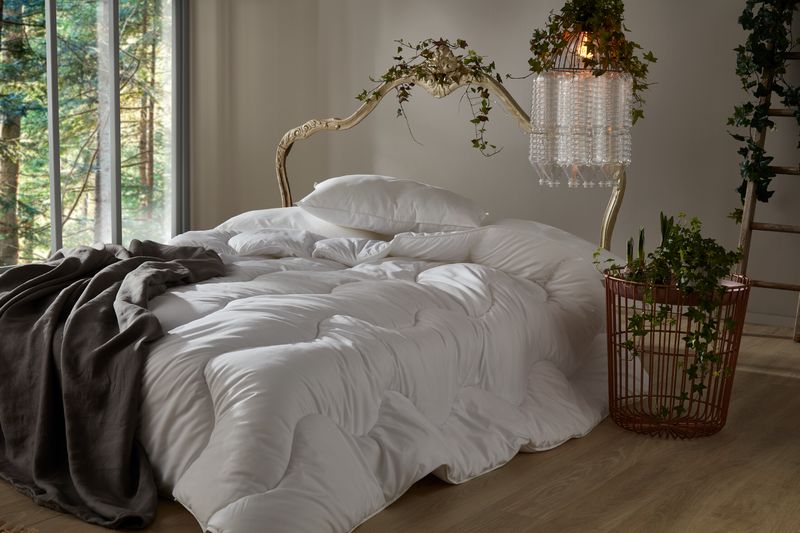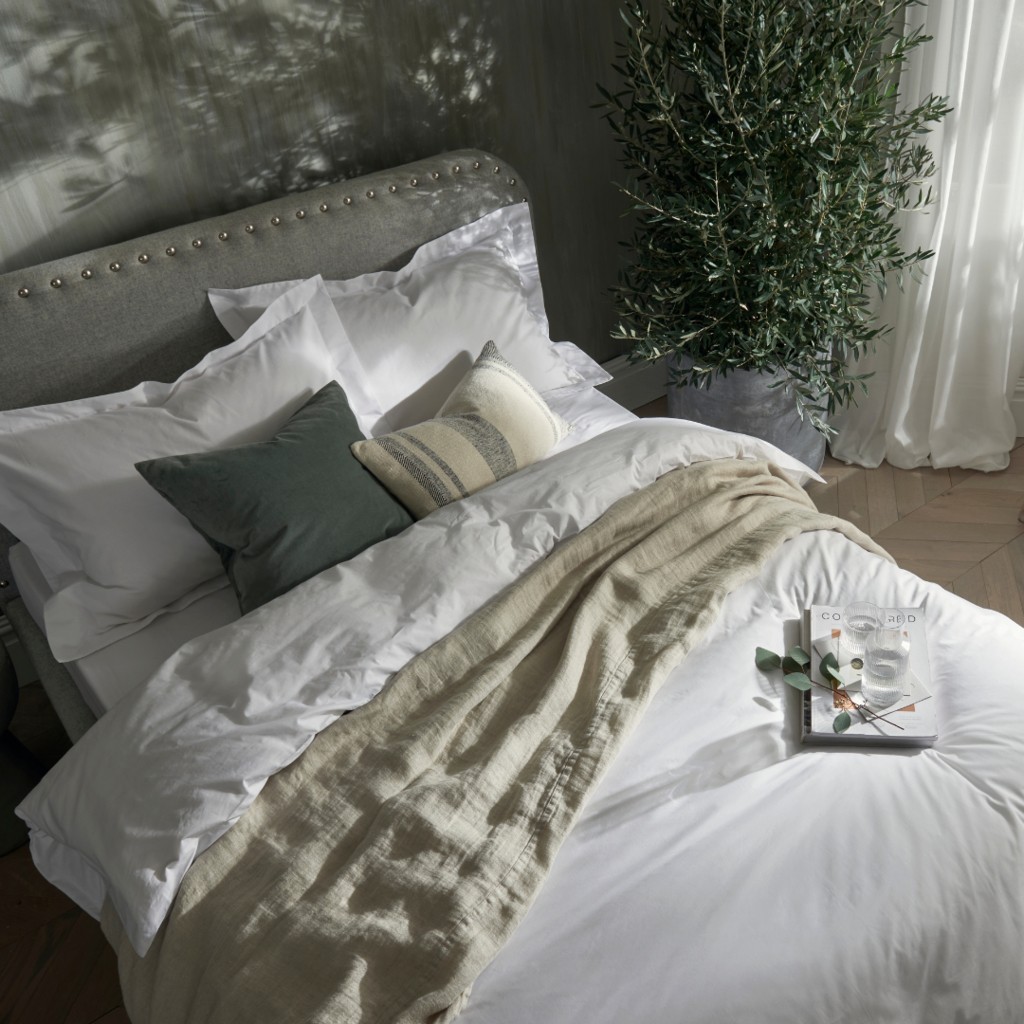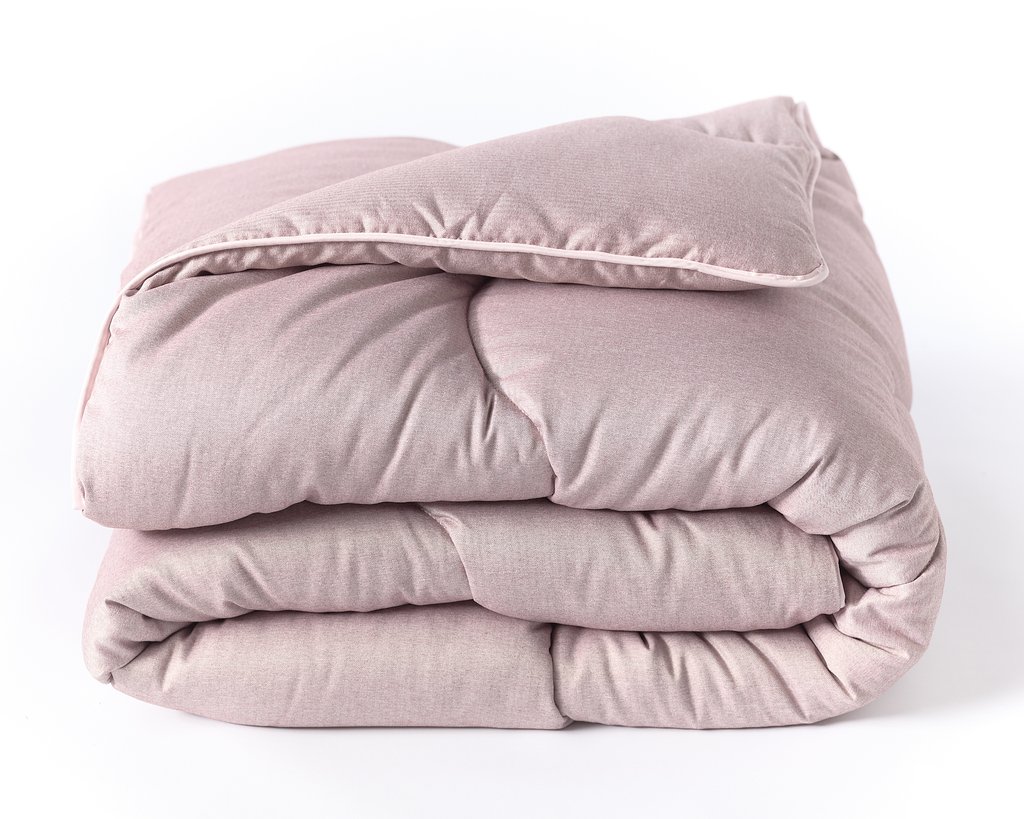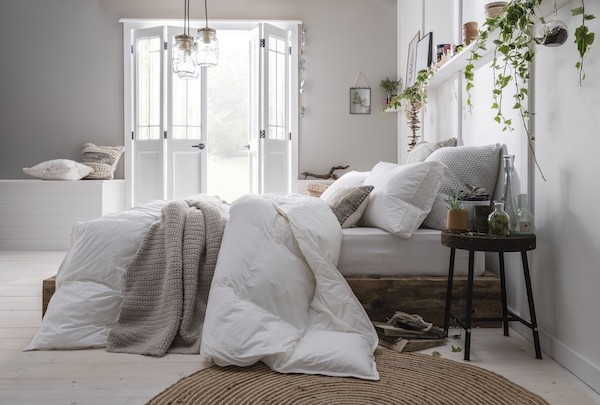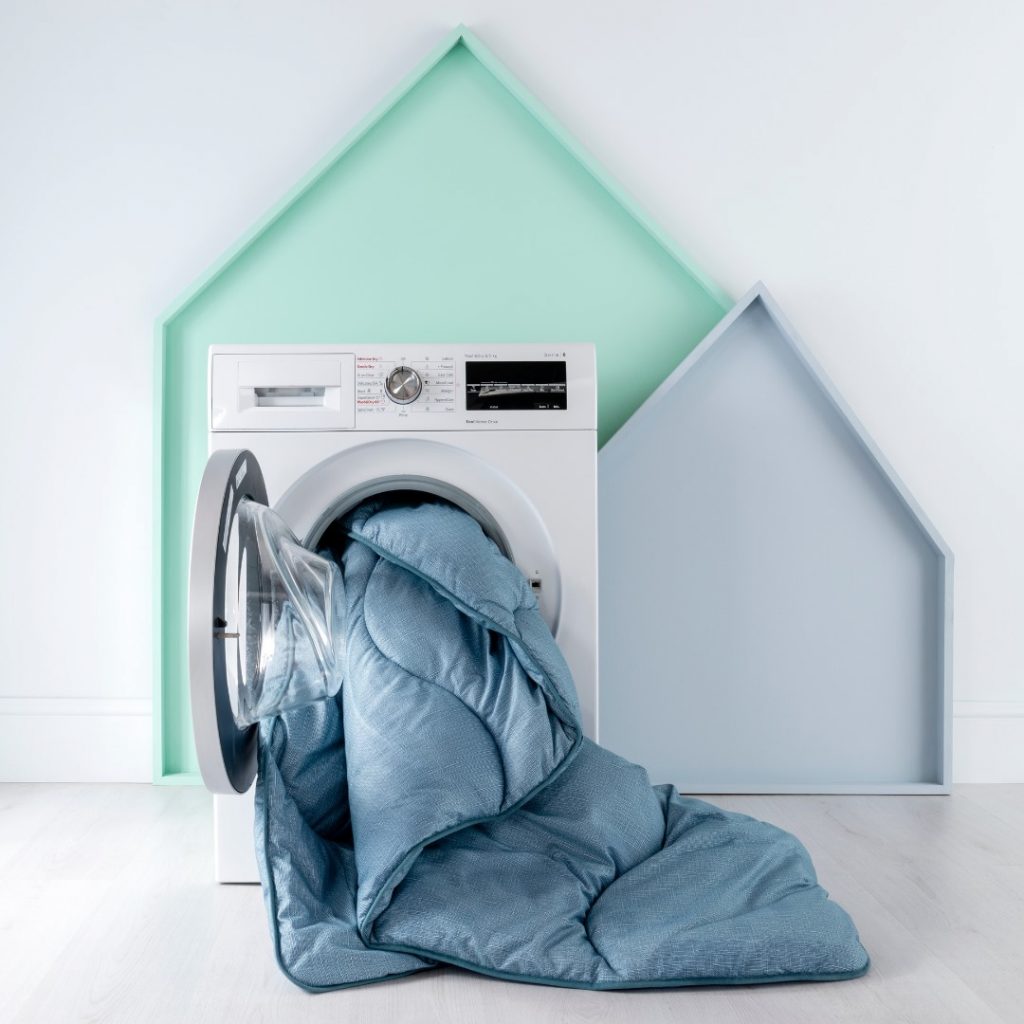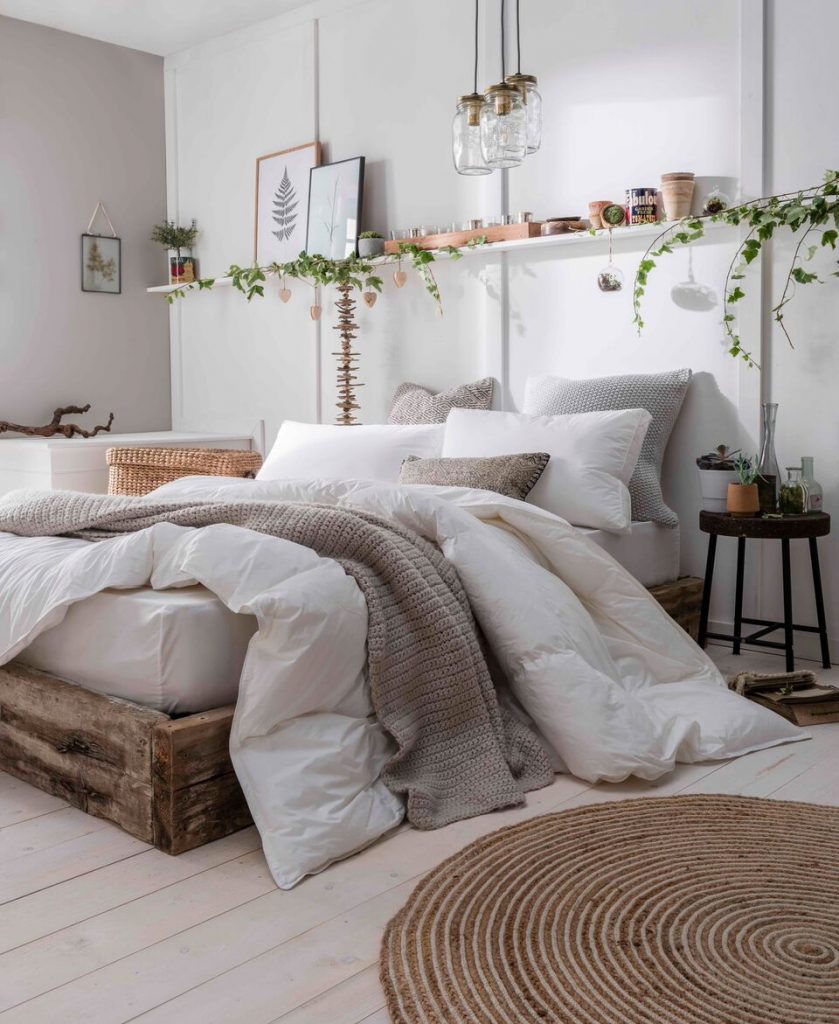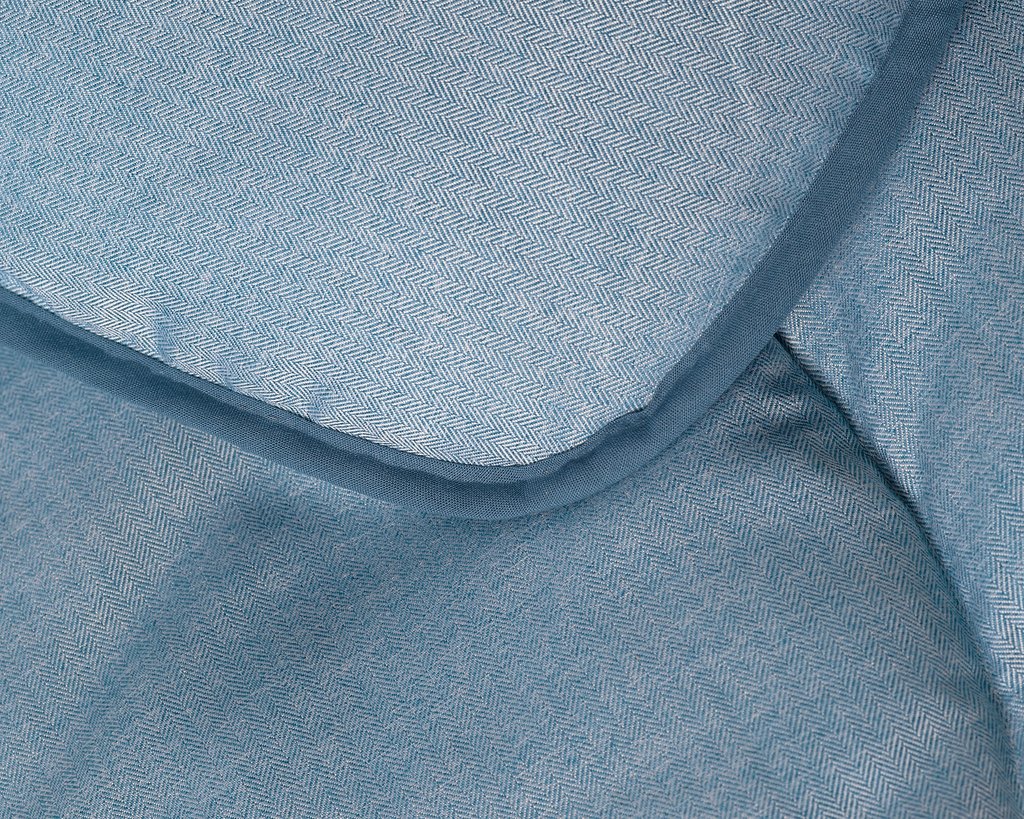More of us are contemplating the environmental impact of products we buy for the home. But have you given any thought to duvets? Mostly made from polyester which cannot be recycled… the reality is, it’s a heavy environmental load. So what makes a more eco friendly duvet?
This is the question The Fine Bedding Company are striving to answer, by bringing sustainable technologies to duvet manufacturing that have never been seen before.
The Fine Bedding Company are a fourth generation family business with a history of bedding manufacturing that goes back 100 years. In 1912 they began supplying large cruise liners and ships with mattresses from their factory in Liverpool. Today, they supply duvets to a range of premium hotels and retailers such as John Lewis.
In 2000, managing director Claire Watkin moved her whole family to Estonia to update a factory out there with sustainable technologies high on the list of priorities.
They have since invented their 10.5 tog Eco Duvet made from 100% recycled (and recyclable) plastic PET (120 PET bottles), which also comes in recyclable packaging.
Other groundbreaking innovations include their Night Owl ‘coverless’ duvet that can be washed in a standard domestic washing machine.
In addition to holding third party eco certifications, their factory runs on 100% renewable energy and 99% of their waste is recycled. I spoke to Claire, to learn more about their endeavours.
With special thanks to The Fine Bedding Company for sponsoring this post.
What are some of the environmental issues around the production of bedding?
A big issue is that most bedding on the market uses polyester as a filling. Polyester is made from fossil fuels which is damaging to the environment and contributes to the CO2 crisis. Cotton is also commonly used. As one of the world’s largest crops, it’s a big contributor to global greenhouse gas emissions and water consumption.
What is The Fine Bedding Company currently doing to address this?
We use Smartfill fibres in almost of our duvets and pillows. Smartfill is unique to us and it’s made of post-consumer plastic bottles which has been cleansed, shredded and repurposed into luxurious, super fine fibres for a cloud-like feel.
By recycling plastic bottles, the carbon footprint is much lower and plastic bottles are diverted from landfill and the ocean, resulting in a much lower environmental impact. We use approximately 120 bottles in a 10.5 tog duvet.
100% of the cotton we use is BCI certified.
Can you tell us more about the third party eco-certifications the company holds?
BCI is an organisation that works with cotton suppliers to reduce water, improve soil health and reduce greenhouse gases by teaching farmers how to reduce their emissions.
All of our Smartfill is GRS (Global Recycling Standard) certified. All of our goose and duck feather and down is Downpass® certified, ensuring the highest standard of animal welfare.
We are also Oeko-Tex certified, meaning no harmful substances are used in any of our products. All our suppliers are audited to ensure highest standards and responsible supply chains.
Environmentally speaking, what aspects of your production and practice still need addressing?
We have a sustainability plan with short and long term targets. We have reduced our energy consumption by 53% in the last 6 years but we plan on reducing this even further.
Our goal is to make our products carbon neutral and develop a preferred materials matrix to we can design products with the lowest environmental impact possible. We have set carbon reduction plans in line with net zero SBTI (Science Based Targets Initiative) for scope 1, 2 and select scope 3 emissions.
We are also looking at how we can become fully circular by offering a solution for duvets and pillows to be re-purposed or recycled at their end of life.
As technology and textile design continue to develop, what do you think the future of bedding looks like?
In the short term, we will see more manufacturers using recycled polyester as opposed to virgin polyester, but in the future more natural fabrics will be used such as cotton and cellulosic fibres such as Tencel. These natural fabrics have an opportunity to biodegrade and often have a longer life.
It’s hoped that consumers will move away from the fast fashion, or ‘fast home’ mindset. Cheaper bedding often has a higher environmental impact and if you buy cheap you buy twice – this means double the environmental impact and double the cost!
It’s hoped that more facilities will exist to recycle duvets and pillows. At the moment no local authorities offer to recycle bedding which is a massive issue.
What are your tips for choosing a more eco friendly duvet?
Our biggest tip is: pay a little bit more and it will last you much longer. Secondly, buy your bedding from brands that are using and working towards more sustainable business practices – check what accreditations they have. Last but not least, choose a fabric/filling with a lower environmental impact such as recycled PET.
With special thanks to The Fine Bedding Company for sponsoring this post.


